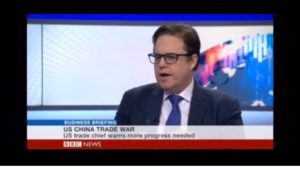
China lawyer Mark Schaub expects an uptick in joint ventures in 2025, and in his latest China Chit-chat, he explains the pros and cons of this legal vehicle. “Due to geopolitics and business uncertainty,” he writes.
Mark Schaub:
I am also predicting an uptick in JVs in China – due to geopolitics and business uncertainty but mostly because I have a book out on JVs. Available at all good bookstores –Amazon
The first insight of the book is that while the world loves a good, clean, linear story life is chaotic and messy. The classic description in most case studies is the plucky international company sees an opportunity/threat, finds a partner, negotiates terms, and then signs on the dotted line.
It is not like that in real life – the JV process is more like throwing dirty (often with skid marks) laundry into a washing machine: messy, repetitive, and often something goes missing while it is happening and no-one knows how or where it went.
Question 1: Is a JV the Right Solution for me? For my partner?
JVs are invariably a solution to a problem – an opportunity that could not be passed up? A problem too complex to tackle alone? A way to enter a new market? Method to gain access to intellectual property? Reduce risk by shared funding?
The question of whether a JV is the right solution has two parts. First is a JV the right fit for you? Second, what is the motivation of your partner? Are they equally invested?
Invariably the partner initiating a JV believes teaming up is better than going it alone but sometimes they find out they were happier alone. Many JVs fall apart because they were doomed to fail from the start because no one understood the motivations.
Mark Schaub answers four more questions during this China Chit-chat.
Mark Schaub is a speaker at the China Speakers Bureau. Would you like him at your meeting or conference? Contact us or fill out our speakers’ request form.
Are you looking for more strategic experts at the China Speakers Bureau? Do check out this list.
